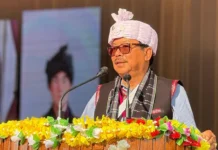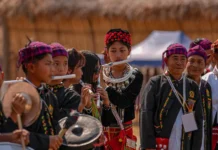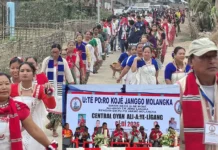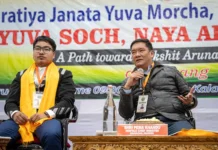NEW DELHI, Jan 3: Responding to a question placed by MP Ninong Ering in Parliament on 1 January regarding cases of human rights violation by the security forces deployed in areas under the Armed Forces (Special Powers) Act (AFSPA), Minister of State for Home Affairs Kiren Rijiju said “information is being collected and will be laid on the table of the house.”
Rijiju said information is being collected regarding the number of cases of human rights violations by the security forces during each of the last three years and the current year, crime-wise and state-wise, and on the number of cases disposed of or pending, and the number of victims given compensation during said periods.
On the measures taken by the government to check human rights violations in the AFSPA-operational regions of the country, Rijiju informed that guidelines containing dos and don’ts have been issued for the armed forces deployed in counter-insurgency operation areas as per direction of the Supreme Court.
“Violation of these guidelines by members of the armed forces makes them liable for prosecution under the Army Act and the respective acts of the central armed police forces,” Rijiju informed the house.
“The human rights cells established at various levels of the army and the central armed police forces regularly monitor alleged human rights violations, by the members of the armed forces.
The troops are sensitized at regular intervals regarding the importance of upholding human rights. The institutional mechanisms are in place at different levels to deal with cases of human rights violation by the members of armed forces,” he added.
Representations have been received from time to time from different organizations and NGOs from Nagaland and Manipur and from the government of Jammu & Kashmir for withdrawal of the AFSPA in phases, he said.
The AFSPA is currently operational throughout the states of Assam, Nagaland, Manipur (except Imphal Municipal area) and Jammu & Kashmir (except Kargil and Leh districts); Tirap, Changlang and Longding districts in Arunachal Pradesh; and the areas falling within the jurisdiction of eight police stations in the districts of Arunachal bordering Assam.




